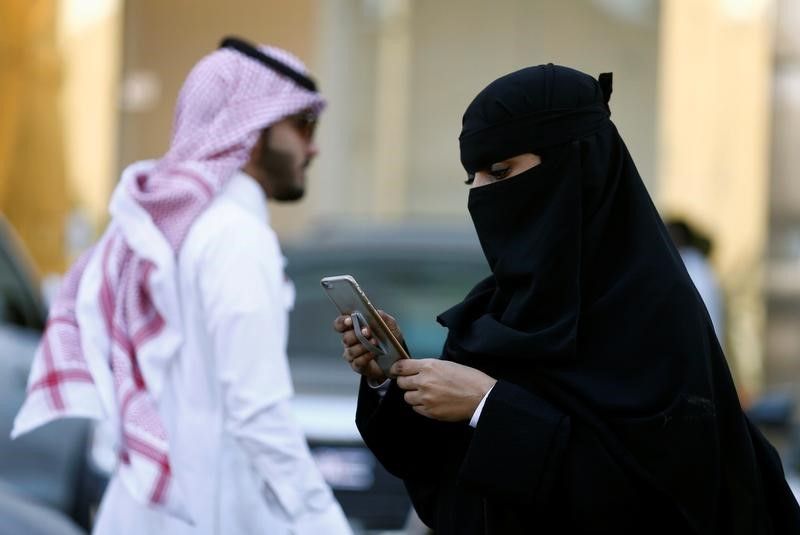On Monday, 18 September 2017, Snapchat reportedly restricted content from the Qatari media outlet Al Jazeera for its users in Saudi Arabia. According to Snapchat, the move was made to comply with local laws – something the company tries to do in all countries that it operates within. However, Al Jazeera says this is an attack on freedom of expression and will have a detrimental impact on media in the region as a whole.
Mostefa Souag, Al Jazeera Media Network’s acting Director-General, stated that Snapchat’s decision “sends a message that regimes and countries can silence any voice or platform they don’t agree with by exerting pressure on the owners of social media platforms and content distribution companies. This step is a clear attack on the rights of journalists and media professionals to report and cover stories freely from around the world.” Al Jazeera’s Hazem Sika stated that while this was surprising behavior from Snapchat, it is largely expected from Saudi Arabia. The kingdom has a record of extensive censorship and this year a United Nations Special Rapporteur criticized the government for its arbitrary detentions of individuals who had expressed criticism of the government.
Still, because social media is difficult to control and censor, its users can often circumvent measures put in place by governments to distribute non approved news to others. To authorities, this is a dangerous tool, especially in a country with so many limitations of free speech. Saudi Arabia, along with several of its Gulf Arab neighbors have installed blocks to internet communication since 2013. Snapchat is extremely popular in Saudi Arabia, possibly making it a particular large and more significant target for government censors.
Additionally, that number of Snapchat users – highlights how Snapchat Inc. would have much to lose if it was excluded from the kingdom. Saudi Arabia is one of Snapchat’s largest markets, with seven million Saudis using the application every day. This makes the country Snapchat’s biggest foothold in the entire Gulf region.
Notably, the news of the new Snapchat restrictions emerged alongside the seemingly contradictory development that Saudi Arabia would be softening limitations on popular applications that use voice over Internet protocol, or VoIP. These types of applications include Skype, Viber and the popular WhatsApp messenger. The Saudi Minister of Telecommunications and Information Technology, Abdullah bin Amer Al-Sawahah, made the announcement on Twitter, in which he relayed that “[Telecoms regulator] CITC will be honored to oversee the review of applications to meet regulatory requirements, and will work with telecommunications companies to lift restrictions in conformity with requirements.” According to the minister, the decision to lift the blocks on these applications came in response to the country’s Vision 2030 reform initiative and its goal of improving the availability of technology in the kingdom.
Despite the purported objectives of the Vision 2030 plan, the relaxation of restrictions on VoIP technology does not come without strings attached. According to Al-Sawahah, government agencies and telecommunications providers will be carefully monitoring the use of these applications. Additionally, Adel Abu Hameed, spokesman for telecoms regulator CITC, said on Arabiya TV that “Under no circumstances can the user use an application for video or voice calling without monitoring and censorship by the Communications and Information Technology Commission, whether the application is global or local,” further highlighting the theme of government restriction. So, while VoIP technology will mean cheaper and easier international calls, it may also expand the government’s already extensive ability to surveil communications and violate the right to privacy.
Moreover, the juxtaposition of this reform with the partial censorship of Snapchat demonstrates that the Saudi government’s main focus is not to enlarge the space for freedom of press and expression. Rather, the government has shown it is willing to go to extreme lengths to silence any form of critical speech. In July of this year, for example, the government executed four men for allegedly participating in protests after torturing them to give forced confessions. These sentences were implemented only one day after the Saudi government executed another six men on similar charges. The human rights organizations Reprieve reports that the Saudi authorities have conducted 438 executions since 2014, 41% of which were for nonviolent crimes. Reprieve concluded that if Saudi Arabia followed its current trajectory, over 2,000 individuals would be executed by 2030 – the year in which the country intends to meet its reform agenda to become a more economically and technologically advanced state.
While the proliferation of new technologies like VoIP may create new openings for Saudi civil society to communicate and organize, it may also provide the government with further opportunities to track dissent – a goal it continues to violently pursue. The concurrent prohibition on Al Jazeera’s Snapchat content, set against a rising number of political executions, only underscores this point. Yet, if Saudi Arabia truly seeks to modernize its economy and take advantage of technological advancements, then the government must enable its citizens to fully engage in the digital age without fear of arbitrary punishment. If Saudi Arabia is genuinely invested in working to achieve its Vison 2030 plan, then human rights reform must accompany that process in order to see meaningful results.
Emily Stone is an Advocacy Intern at ADHRB.





